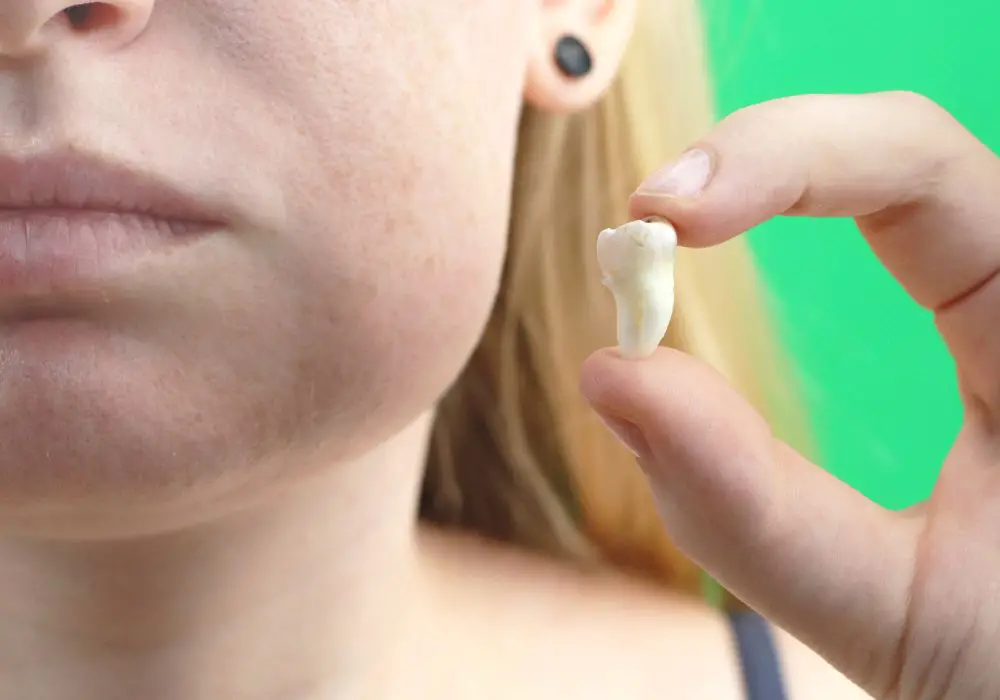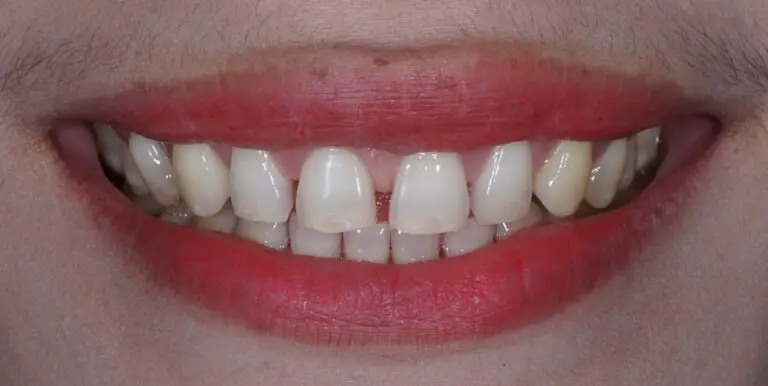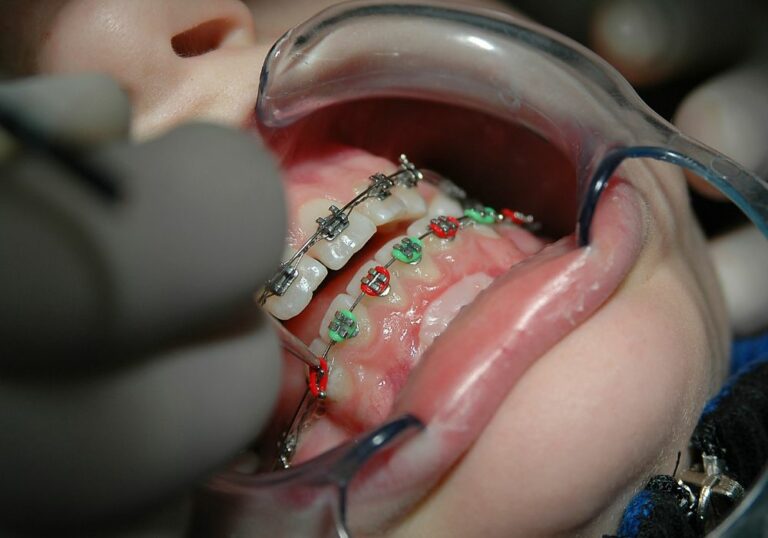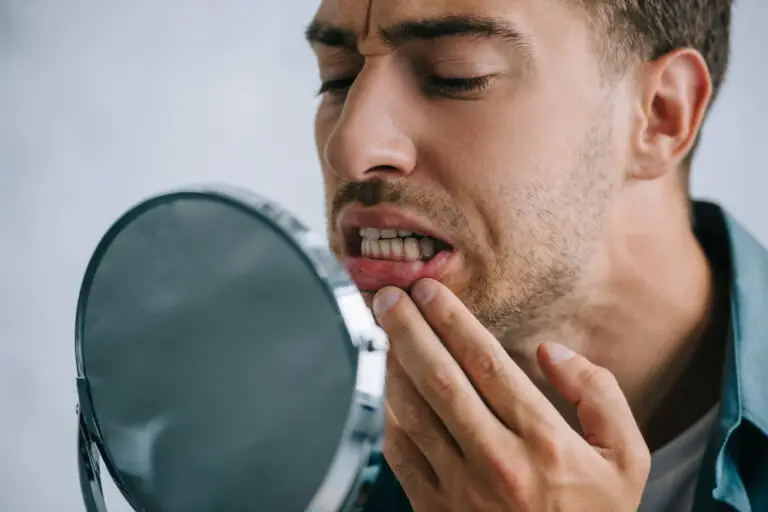Did you have a wisdom teeth removal? If so, I feel you! The aftermath of this common procedure can be ridden with discomfort, jaw stiffness, and pain, and people often wonder why one side is more swollen after wisdom teeth removal!
When my wisdom tooth was removed, my left cheek swelled, and I started to wonder whether this was normal and if I should go back to the dentist’s office!
Actually, swelling after surgery is completely normal, and there is a number of reasons why cheeks swell after wisdom teeth removal!
Causes of Lopsided Swelling Following Wisdom Teeth Extraction
So, before we go into specific reasons regarding the swelling of one side after surgery, let’s briefly discuss wisdom teeth removal and what it entails.
Wisdom tooth extraction is a type of invasive surgical procedure carried out by an oral surgeon and includes the removal of the wisdom tooth.
It differs from the usual tooth extraction, which a regular dentist does, and it includes local anesthesia and the surgeon securing the extraction site with stitches or sutures. After the surgery, you will be given pain medication such as Ibuprofen or Advil (and an antibiotic).
Wisdom teeth, also known as third molar teeth, are the last ones to appear on the scene, usually in the late teens or early 20s. In the majority of cases, their eruption comes in tandem with lots of pain since there is no place in the mouth for them to develop, which results in dental crowding.
1. Tooth Size
Each tooth is special and unique, and its size can be related to the amount of swelling your see on your cheek. Every person has different teeth. Although they may seem similar, teeth are almost like fingerprints, meaning they are unique, yours, and yours only!
That said, some people generally have larger mouths and larger teeth, while others can naturally have shorter and smaller teeth than usual.
When it comes to wisdom teeth removal, these third molars are the largest and strongest teeth, so when a person has naturally big teeth, the extraction site after the removal has to be larger.
In other words, these teeth leave a larger area of damaged tissue, which may result in swelling. It also explains why the recovery process can last up to 14 days.
2. Number of Extracted Teeth
Let me tell you about my personal story. About five years ago or so, I was dealing with one inflamed wisdom tooth in the lower jaw and had to endure some amount of swelling after the surgery. On the other hand, a friend of mine had two of his wisdom teeth extracted on both sides of the lower jaw, which left his face looking like a balloon. His case brings us to another cause of the swelling.
The extraction of several teeth usually results in swelling since we are talking about not one, but two or more extraction sites- in other words, a lot of damaged tissue.
Also, let’s not forget that swelling is just a part of the healing process, which one must go through since it’s the body’s reaction to an invasive procedure.
3. Tooth’s Location

Now, you do not need to be a dentist to be aware of the complexity our teeth, jaw, and mouth possess.
In addition to that, over the years, you have probably heard about or seen some dental anomalies, like wisdom teeth growing sideways or being impacted or erupting in an inaccessible area.
When you have most of your teeth and a very small jaw, as I do, extracting this tooth can be a true challenge for an oral surgeon. It may need extensive surgery, lasting longer than usual, and most likely causing swelling.
That is often the case with the impacted wisdom teeth, which are partly or completely trapped in the gums or jawbone and cannot erupt, resulting in pain, itching sensation, and sometimes even headache and neck pain.
4. Location of Vessels and Nerves
When it comes to the human face, it is a unique aspect of any individual, and its deep anatomy contains muscles, fat pads, bones, but also a lot of vessels and nerves. As mentioned, each face and the arrangement of vessels and nerves in it can be different.
So, how is this related to the swelling of my cheek? When a tooth is extracted, the area around it is affected and damaged. If a nerve or vessel is affected, cut, or damaged during teeth extraction, you can bet on some swelling!
Also, some people have more blood vessels on one side than the other, and all of these factors can affect whether your face will swell!
5. Swelling as Part of Healing
As mentioned, swelling is the body’s reaction to the procedure or the change that has happened to the body. Swelling is a sign that your body is repairing the wound.
The way swelling transpires when the body sustains an injury is that the blood vessels widen to ease the blood flow and send vitamins, oxygen, and minerals to the wound area. The widening stems from the increase in fluid movement and is observed by us humans as swelling.
Now there are no two unique human beings – not even identical twins are identical – which means that healing can last longer for some people and include more swelling than what another person might experience.
On rare occasions, patients with extracted wisdom teeth do not experience swelling. Some patients heal after a week, while recovery can last up to 14 days for others. However, your habits and lifestyle can also affect the healing process.
If you drink alcohol and are an avid smoker, the healing process will be delayed, especially if you do not follow the surgeon’s instructions and recommendations.
6. Sign of an Infection
Swelling is also a sign of an infection. Sometimes, people have their teeth extracted, experience some swelling that dies down, and then their cheek swells again. Infection alert!
Also, if the swelling lasts longer than six days following the surgery, that can also indicate an infection. Examining the extraction site lets you know whether you have an issue.
After the surgery, you will swell, but the swelling will start to die down more and more with each day. Common symptoms of infection include fever, excruciating pain, redness and sensitivity of the gums, and in some cases, an unusual taste in your mouth.
Infection after wisdom teeth removal can happen if you do not take care of the extraction site and do not follow the dentist’s instructions.
How to Reduce Swelling?
We’ll list some of the more popular ways with which you can not only reduce the swelling but also care for the wound but before that, let’s remember that one must keep the gauze pad for at least half an hour.
1. Use Ice Packs and Moist Heat
If you’re a person who plays or watches sports, then you must know that the best way to reduce swelling includes pressing an ice pack onto the swollen cheek.
You should hold the ice pack for a few minutes and repeat the process every couple of hours. If you don’t have any ice, another thing you can do is wet a gauze, place it in the fridge for an hour or two, and use it as a cold compress.
Lastly, you can apply moist heat, which will reduce the jaw’s swelling, discoloration, and stiffness.
2. Proper Diet
The next thing you need to do to recover properly is to follow a specific diet for a couple of days after the surgery, which includes soft foods and drinks like mashed potatoes, yogurt, smoothies, applesauce, soups, ice cream, and many others.
Here is a list of foods you can eat!
3. Gargle Salt Water
One thing you will often hear dentists suggest doing is rinsing the mouth with an antiseptic wash or salted water due to their antibacterial and anti-inflammatory properties. How to make the saline water solution, you might wonder?
Well, it is very simple as you just need to take a glass of warm water (not hot) and add a teaspoon of salt.
One thing worth noting here is that you should not rinse your mouth with this solution the first day after the surgery. If you feel better and the pain has reduced by the second day, you can start rinsing as a part of aftercare and preventing bacteria from entering the extraction site.
Also, avoid using straws, flossing, and brushing on the first day, but you can return to your routine on the second day.
Common Complications

There are a lot of things that can go wrong after the surgery, such as a dry socket – one of the most feared consequences of the procedure.
A dry socket is a condition that occurs when a blood clot fails to form in the extraction site.
Sometimes the blood clot develops after the surgery, but smoking, eating crunchy and crispy food, and drinking alcohol can dislodge it and thus cause a dry socket.
You might also experience slight bleeding, which can be controlled by rinsing your mouth or placing a tea bag or a gauze pad over the site.
Also, if you experience some numbness and stiffness in the jaw, lip, and tongue, know that these are completely normal things.
In case the swelling goes on for 10 days or so without reduction size-wise, and you feel pain in the back of your throat, there is a chance you may have an infection. If you feel something is wrong, do not hesitate to contact your dentist!
Conclusion
So, now you know the causes of swelling after wisdom tooth extraction. But as the Latin saying goes “Repetitio est mater studiorum”: tooth’s size, number of extracted teeth, tooth’s location, infection, and location of nerves and vessels.
If you want your recovery process to go the best way possible, follow the proper diet and stay away from smoking, brushing, flossing, and eating crunchy food for a few days.
How was your experience with wisdom teeth removal? If you have any questions, do not be shy and ask away!






